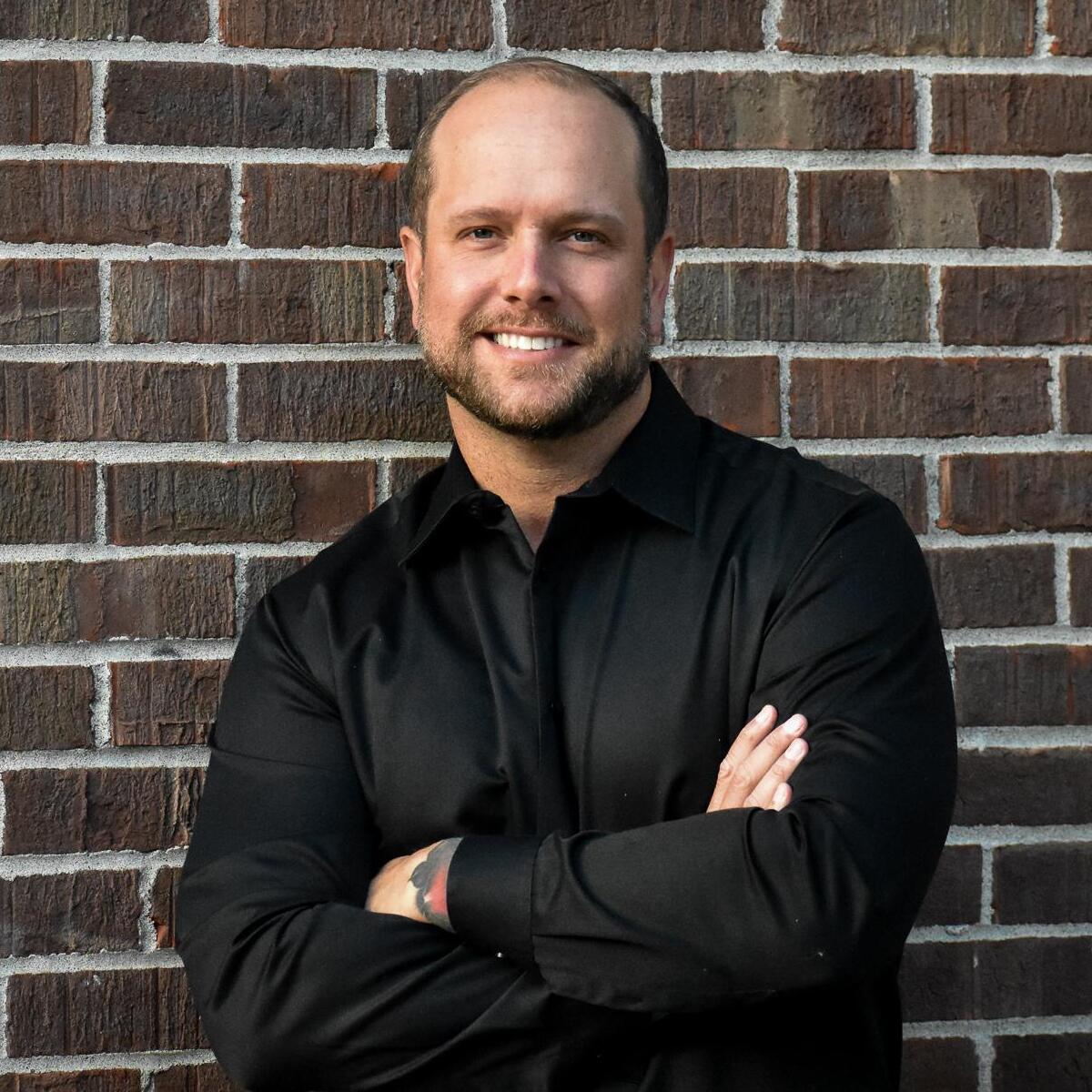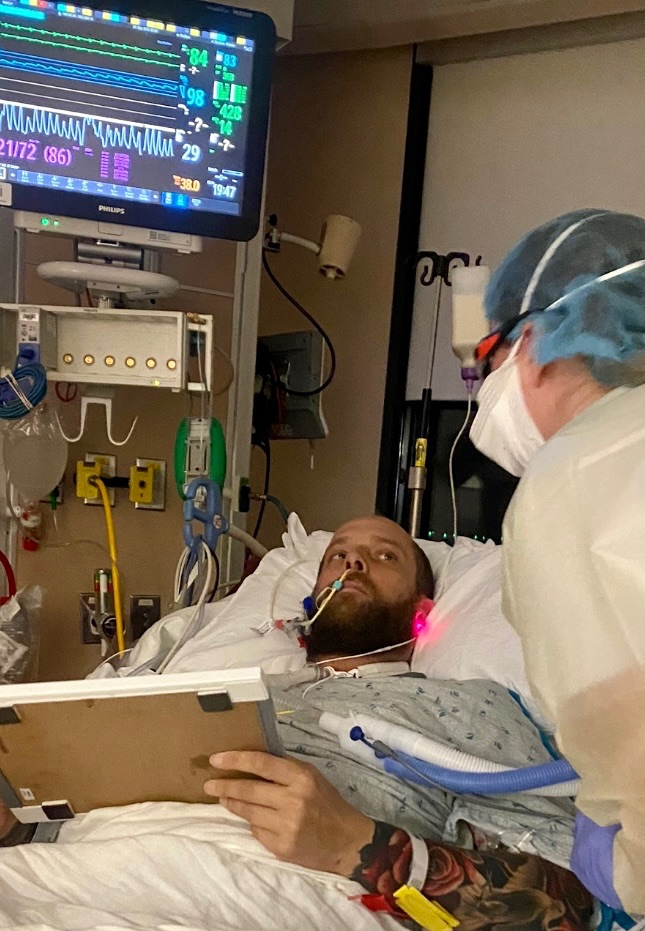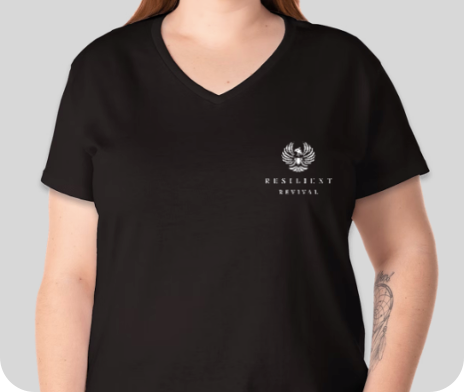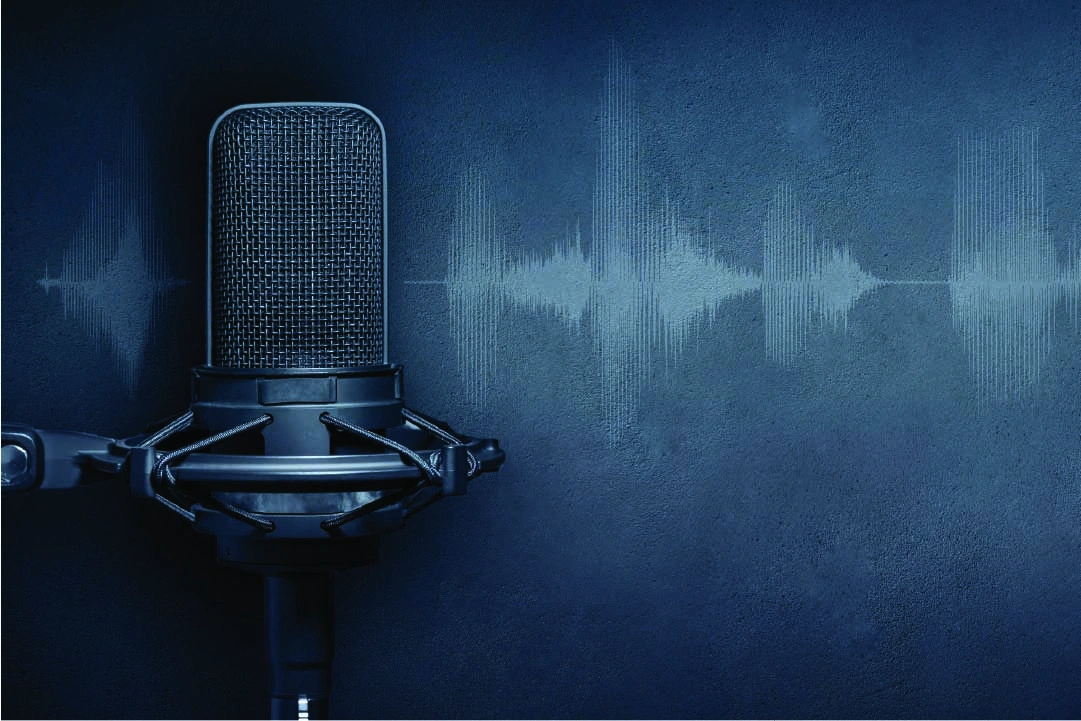A MESSAGE FROM OUR FOUNDER
We are going to help people believe in themselves again, to understand that starting new doesn’t mean it’s over. We’re going to change lives for the better and, with your help, continue to create a community of shared experiences in which we can empower others struggling to know they are not alone.
I’ve lived it – I was given a dehumanizing and uncomfortable paper shirt upon entry. I had very few mental health resources to access during my recovery. There are improvements that we can make in the comprehensive recovery process.
We are going to show others, there are people that believe in those recovering. I hope you’ll be a part of our journey and spread this belief alongside me.I appreciate your time!Billy


A MESSAGE FROM OUR FOUNDER
We are going to help people believe in themselves again, to understand that starting new doesn’t mean it’s over. We’re going to change lives for the better, and with your help continue to create a community of shared experiences in which we can empower others struggling – to know they are not alone.I’ve lived it – I was given a dehumanizing and uncomfortable paper shirt upon entry. I had very few mental health resources to access during my recovery. There are improvements that we can make in the comprehensive recovery process.We are going to show others, there are people that believe in those recovering. I hope you’ll be a part of our journey and spread this belief alongside me.I appreciate your time,BillyAccording to the Center for Medicare Advocacy, the average length of stay for inpatient rehabilitation is 12.4 days.

WHY OUR HELP IS NEEDED
With survival rates generally improving in critical illness, there has been an increased focus on how patients transition after they leave the intensive care unit. Many patients are still weak and debilitated after they leave the ICU, despite daily exercise and rehabilitation. It can take many days or weeks before they are strong enough to perform simple tasks like getting out of bed or dressing themselves. Almost HALF of patients are still unable to function independently a year after their episode of critical illness.
Patients with PICS (Post-ICU syndrome) may have new or worsening brain (cognitive), emotional, and/or physical symptoms. The symptoms start after the critical illness, persist after discharge from the ICU and can last for weeks, months, and even years.
Our organization envisions to create a community where belief is revived post-trauma through education, support, encouragement, and connection to mental health and rehabilitative resources.
Apparel
One of our nonprofit’s objectives is to inspire belief in those experiencing the post-ICU transition. We are doing this by putting free, comfortable 100% cotton shirts in the hands of recovering patients. Many in- and out-patient or inpatient and outpatient post-hospital rehabilitation centers utilize uncomfortable and dehumanizing paper shirts for their patients when these patients are already questioning what their new normal will be. While experiencing their trauma, the last thing someone needs is to lay in bed in this uncomfortable, debasing ”clothing.” Often, these patients are already in pain and have to sleep in this clothing. It is a constant reminder that they are far from what they used to be.
These donations will inspire belief that there is hope forward, and those in this situation will be linked to a community of shared experiences and a reminder that they are not alone in their recovery journey. During our experience speaking with several medical staff, they have experienced many times in which they spent their own money for patients that had nothing to wear. Many patients had no family to go out and buy them clothing and were in recovery alone. No longer should medical staff have to spend their own money, patients have to question what they will wear to sleep, or be embarrassed to perform rehab when they are already questioning their ability to overcome their weaknesses and be able to live their lives fully again.
100% Cotton
V-Neck design for easy accessibility
Dark color for stains/wear
No tag design for comfort and less irritation
Loose sleeves for accessibility
Comfortable to rehab and sleep in
Unisex sizing
Eliminates dehumanizing paper shirt
No cost to patient

Apparel
One of our nonprofit’s objectives is to inspire belief in those experiencing the post-ICU transition. We are doing this by putting free, comfortable 100% cotton apparel in the hands of recovering patients. Many in- and outpatient post-hospital rehabilitation centers utilize uncomfortable and dehumanizing paper shirts for their patients when these patients are already questioning what their new normal will be. While experiencing their trauma, the last thing someone needs is to lay in bed in this uncomfortable, debasing ”clothing.” Often, these patients are already in pain and have to attempt to sleep in this clothing it is a constant reminder that they are far from what they used to be.
By donating this apparel to those in recovery, it will inspire belief that there is hope forward, and those in this situation will be linked to a community of shared experiences and a reminder that they are not alone in their recovery journey. During our experience speaking with several medical staff, they have experienced many times in which they spent their own money for patients that had nothing to wear. Many patients had no family to go out and buy them clothing and were in recovery alone. No longer should medical staff have to spend their own money, patients have to question what they will wear to sleep, or be embarrassed to perform rehab when they are already questioning their ability to overcome their weaknesses and be able to live their lives fully again. We have the ability to change lives by one small act of belief at a time


Podcast
Our podcast @FromTenToThree was created to share stories, create community, inspire others, and lift some of the weight of our own personal journeys. From our founder’s experience during his hospital stay he was grateful to have visitors and family up until 10pm when visiting hours ended. The next contact he had was when the nurse came in for bloodwork at 3am, he was alone in his thoughts. It was in these hours from 10pm to 3am that he found the fight really began, not from a physical sense but from a mental one. Alone in the hospital bed he battled with depression, anxiety, and the will to continue on fighting the next day. While to weak or tired to focus on the tv, and music bringing up so many memories for a life that was no longer, he wished he had stories to listen to of others who experienced adversity and things that worked for them and how they came out the other side.The podcast provides interviews and life stories of others that have gone through all types of adversity and dive into how it effected their lives, mindsets, tips and tools to help move forward, and what they’ve learned from their personal experience.
Podcast
Our podcast @FromTenToThree was created to share stories, create community, inspire others, and lift some of the weight of our own personal journeys. From our founder’s experience during his long hospital stay he was grateful to have visitors and family up until 10pm when visiting hours ended and roughly when the next nurse came in for bloodwork at 3am he was alone in his thoughts. It was in these hours from 10pm to 3am that he found the fight really began, not from a physical sense but from a mental one. Alone in the hospital bed he battled with depression, anxiety, and the will continue on fighting the next day. While to weak or tired to focus on the tv, and music bringing up so many memories for a life that was no longer, he wished he had stories to listen to of others who experienced adversity and things that worked for them and how they came out the other side.The podcast provides interviews and life stories of others that have gone through all types of adversity and dive into how it effected their lives, mindsets, tips and tools to help move forward and what they’ve learned from their personal experience.
Youtube
Spotify

PLAY
”Post Hospital Recovery”
What Drives Us
More than 5 million patients are admitted annually to hospital intensive care units (ICUs) in the United States alone, most of these patients will be monitored in a step-down unit or enter hospital in-patient or out-patient rehabilitation.
- 5 million+ patients are admitted annually to hospital intensive care units in the United States.
- Most of these patients will enter hospital in-patient or out-patient rehabilitation.
1 in 3 people discharged from ICUs have clinically persistent symptoms of depression and can last for over a year. The prevalence of depressive symptoms in this population is 3-4x that of the general population.
- 1 in 3 people discharged from ICUs have clinically persistent symptoms of depression.
- Depressive symptoms in this population is 3-4x that of the general population.
1 in 5 U.S. adults is experiencing some form of mental illness, it’s difficult to dismiss the need for more awareness around mental health.
- 1 in 5 U.S. adults is experiencing some form of mental illness.
According to a study conducted by the Lancet journal, in 2020, approximately 75.2 million people across the world had anxiety disorders. The number increased by 25.6% when compared to 2019.
- In 2020, approximately 75.2 million people across the world had anxiety disorders.
- The number increased by 25.6% when compared to 2019.
In 2020, 45,979 Americans took their own lives by suicide. 3.2 million planned a suicide and 1.2 million attempted suicide.
- In 2020, 45,979 Americans took their own lives by suicide.
- 3.2 million planned a suicide and 1.2 million attempted suicide.
